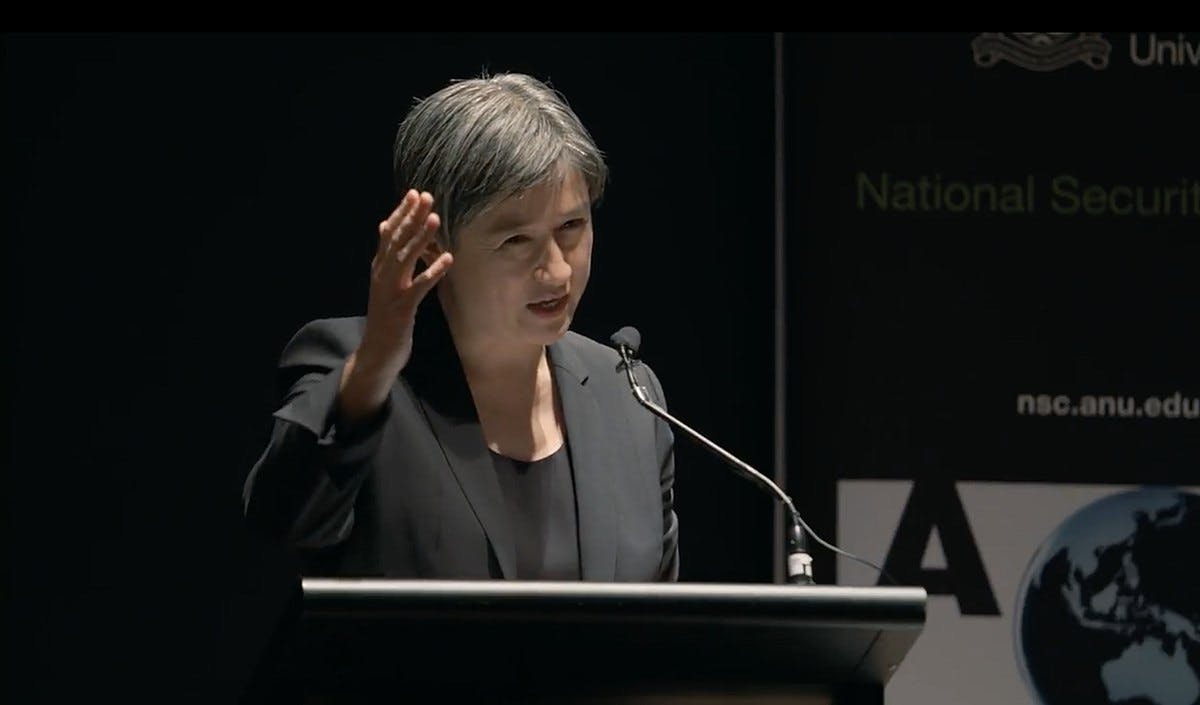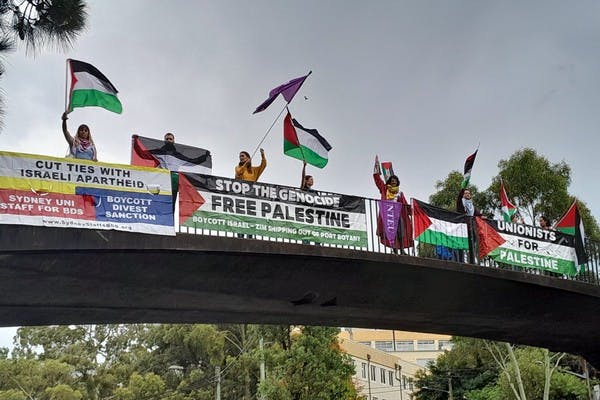Published: 13 February 2020
Last updated: 4 March 2024
The Climate Mobilisation movement seeks to spearhead action on climate change, by urging local councils, and larger governments to declare a state of “climate emergency”, Salamon explained.
“The Climate Mobilisation set out to create this paradigm shift, into one of ‘emergency mode’,” Salamon said. “[It’s the concept that individuals and groups can be in emergency kind of mental functioning - like if your house is on fire - it’s a level of focus, prioritisation, use of resources; that no matter what is happening or what was happening before that - now the house is on fire, and in order to achieve safety, everything has to go into that.”
The feeling in the room was grim and restless, much like Salamon’s own demeanour. There was a sense of urgency, evident in the high turnout for the event, after witnessing the horrific bushfires over the last two months.
The feeling in the room was grim and restless, much like Salamon’s own demeanour. There was a sense of urgency, evident in the high turnout for the event, after witnessing the horrific bushfires over the last two months.
The fires are set to be the worst on record in Australia, and are linked to climate-change induced, unprecedented hot, dry conditions and high fire-risk weather. Across the world, fire seasons have increased by 20 percent in the last 40 years.
“We need a World War II level of climate organisation. We have to do everything we can to protect ourselves,” Salamon declared.
Climate Mobilisation presents what that scale of action looks like in its ‘Victory Plan’, which outlines policies and changes that would allow us to hit zero carbon emissions - and also refix existing carbon from the atmosphere back into the ground - within ten years.
Salamon was interviewed on stage by Eytan Lenko, a founding member of Jewish Climate Network, and climate mover and shaker in his own right. Along with serving on the board of Climate Mobilisation, Lenko is Chair of Beyond Zero Emissions, an Australian climate and energy solutions think tank that brings together researchers and engineers to provide innovative solutions to climate change.
“We have all the technology we need to solve the climate crisis,” Lenko told the room. “Why we don’t do it is a psychological and political problem, more than a technical problem.”
A shift to a climate emergency mindset, he believes, will help bridge this gap. “One of the things that holds us back is the concept when we decarbonise the economy, that we have to do less, eat less, move around less,” he says.
“But actually the effort that we are talking about—where everything is powered by renewables, everything is electrified and not causing emissions—you can actually do more, and not feel shame or guilty about it, because we’ve changed the system.”
[gallery columns="1" size="large" ids="33503"]
Since the inception of the ‘climate emergency’ declaration in 2016, 1250 councils and 25 countries around the world, and the European Union itself, have declared a climate emergency.
This means that an organisation understands the valence and urgency of the climate situation and commits itself to implementing measures that address it - such as those offered by Beyond Zero Emissions.
“In Berkley (near San Francisco), one of the first cities in the US to declare a climate emergency, they banned gas hook-ups in new construction,” Salamon explained.
“That policy has spread to about 20 cities. Just recently the mayor of New York, and also in Canberra, Australia, just declared they would not build any more new fossil fuel infrastructure. They weren’t expecting these ‘natural gas bans’— it was supposed to be impossible. But now they’ve changed.”
Salamon is in Melbourne as keynote speaker for the National Climate Emergency Summit, which will be held over this weekend.
The Jewish Climate Network was formed in Melbourne in April 2019, and primarily focuses on community education though conducting in-house sessions with members of the community, and also aims to mobilise action around climate change in the Jewish community. This was its second major community event.
Main photo: Margaret Klein Salamon (second form left) with members of the Climate Action Network at Wednesday's meeting (Max Gross)




